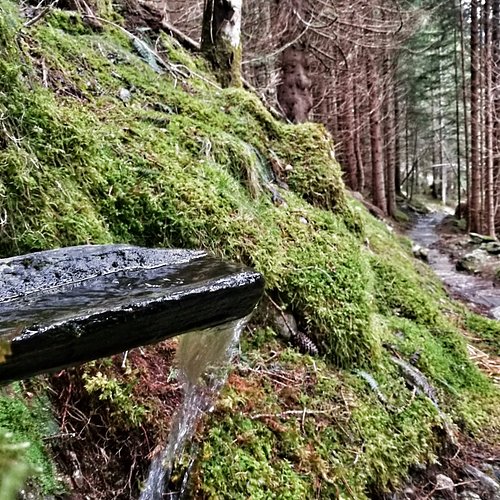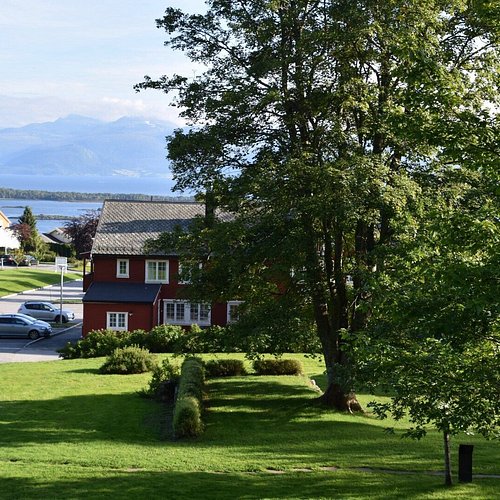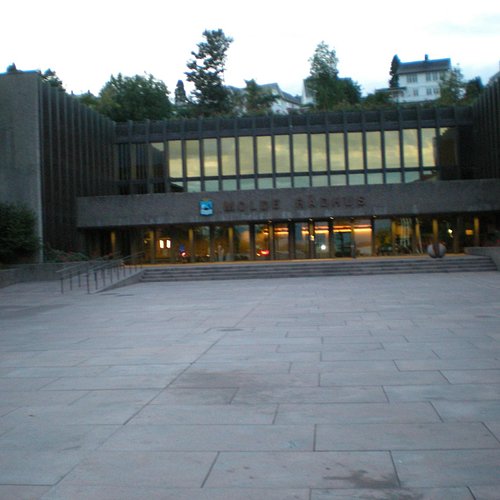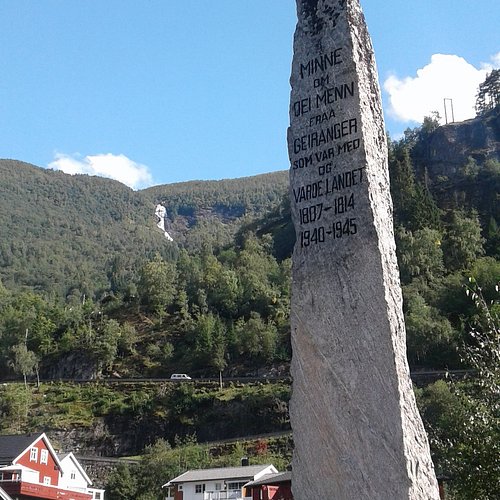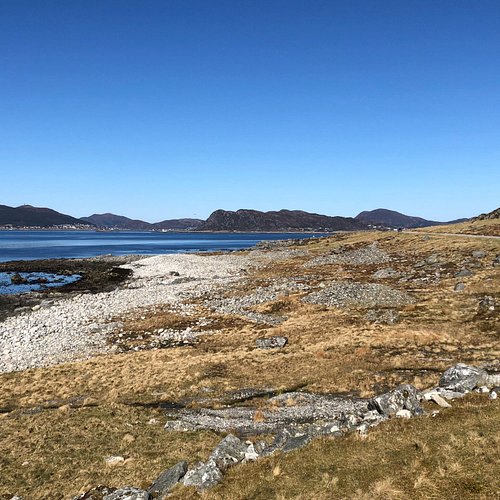Things to do in Møre og Romsdal, Western Norway: The Best Historic Sites
The most northerly of the Western Fjord counties, More og Romsdal is a land of rich and rugged terrain, including steep mountains, rolling valleys, many islands, some of the country’s longest waterfalls and, of course, the deep fjords that make the area so famous. Geirangerfjord, one of Norway’s most visited fjords, is a UNESCO World Heritage Site, and home to the spectacular Brudesløret (Bride’s Veil) and De Syv Søstrene (The Seven Sisters) waterfalls. Picturesque Alesund is the county capital.
Restaurants in More og Romsdal
1. Tingvoll Museum
Overall Ratings
4.5 based on 4 reviews
Tingvoll Museum is a 19th century farm with a magnificent view to three mountain ranges. The museum consists of nine well-equipped buildings, including schoolroom, shop, gate saw, mill and smithy. Every Thursday at 12.00 during summer there are activities for visitors to study and participate. For example: Baking your own traditional bread, go to school, cut the gras and dry it for winterstorage, or study weapons and tools and try cooking as during the Stone age. Every weekday there are guided tours at 12.00 and 14.00. Groups may book packages consisting of entertainment, traditional food, activites or small surprises. The special premises in the barn can accomodate approx. 40 persons.
2. Hellevegen
3. Ergan Coastal Fort
Overall Ratings
4.0 based on 48 reviews
Restored German coastal fort from World War II with command centre, cannon positions, sickbay and water reservoir built into the rock. In addition to the 350 Germans, Bud was home to 150 Russian and Polish POWs during World War II. The fort has a view of the whole of the Hustadvika bay, the shipping lanes to alesund, Molde and Kristiansund as well as the fishing villages of Bjornsund and Ona.
4. The Royal Birch and the Peace Grove
Overall Ratings
4.0 based on 13 reviews
The place where King Haakon and Crown Prince Olav sought shelter from German bombers in April 1940 when they were being hunted by the German occupying forces. The Peace Grove next to the Royal Birch was founded by Knut odegard, president of the Bjornson festival in 1997. It symbolises the continuing struggle for freedom, peace and human dignity both today and in the future. Among those who planted trees are presidents, Nobel laureates, writers and Thor Heyerdahl.
5. The Rose Maiden Molde Town Hall
Overall Ratings
3.5 based on 41 reviews
In the Town Hall Square in the Town of Roses stands the bronze statue of the Rose Maiden, surrounded by a dancing fountain. The Rose Maiden is young and beautiful and has her arms full of roses. The sculpture was a gift to Molde in 1971 from Gotlib Moe, owner of the former clothing factory Hovding Konfeksjonsfabrikk. It was sculpted by Ragnhild Butenschon. Molde Town Hall was completed in 1966 and is the result of an architectural competition won by the architects Cappelen and Rodahl. Built in concrete and stone it features gold-tinted glass. The roof of the town hall boasts one of the town's most beautiful rose gardens.
6. War Memorial
7. The Ivar Aasen Centre
Overall Ratings
3.5 based on 13 reviews
THE IVAR AASEN CENTRE, with its special focus on language and literature and its unique architecture guarantees you a wealth of memorable experiences while you are here and plenty of food for thought after your visit. Opened in 2000, the main building was designed by the Norwegian master architect Sverre Fehn and boasts the most prestigious architectural award that Norway has to offer. THE INTERACTIVE DISPLAYS AND EXHIBITS have so much for visitors to see and do - time will simply fly by! Every single day, they present something new about the languages of the world and from the current debate on the language situation in Norway. IVAR AASEN (1813-96) was the language researcher and writer who changed the course of Norwegian history. He created New Norwegian, a written language based on living dialects all over the country, and some of Norway's best loved songs came from his pen. The CAFETERIA offers you tasty meals and snacks and the chance to browse through the day's news in papers from many parts of Norway. The GIFT SHOP contains hundreds of articles and gifts, many of which are exclusive to the Centre, at a wide range of prices. GUIDED TOURS are organised every hour throughout the summer season, or as and when the need arises. Every Tuesday and Friday their friendly farm cat Lurivar will take children on a tour designed especially for them.
8. Petroglyphs at Bugge
Petroglyphs are signs and symbols that were carved into the rock in the days when people lived from fishing and hunting. The carvings may be a celebration of good hunting grounds and large stocks of game, or magical pictures bestowing powers on the hunter over the animals he wanted to hunt. The largest collection of prehistoric rock art in More og Romsdal is at Bogge in Nesset. The oldest group dates back 6,000 years.
9. Strandgravfeltet Pa Losetstranda
At Løsetstranda you will find burial cairns along the shore. This large prehistoric cemetery with 63 graves is one of the largest in Norway. The cairns are dated late Iron Age or early Bronze Age. There has been a belief that the hulder lived in the cairns and mounds. Please show respect for the graves of our ancestors. All medievel and prehistoric archeological sites are protected by law.
10. Skjonghelleren
Overall Ratings
4.0 based on 1 reviews


